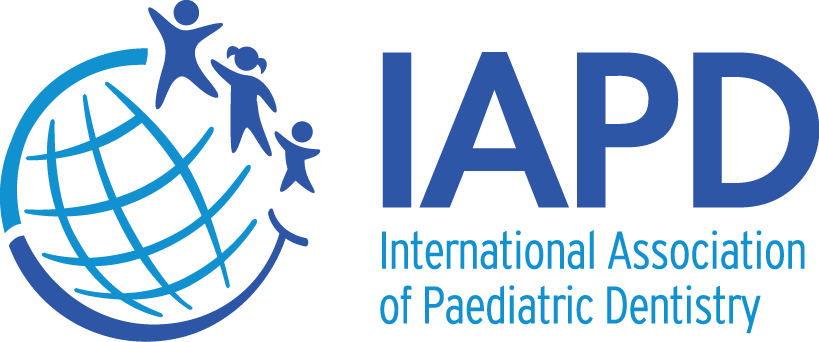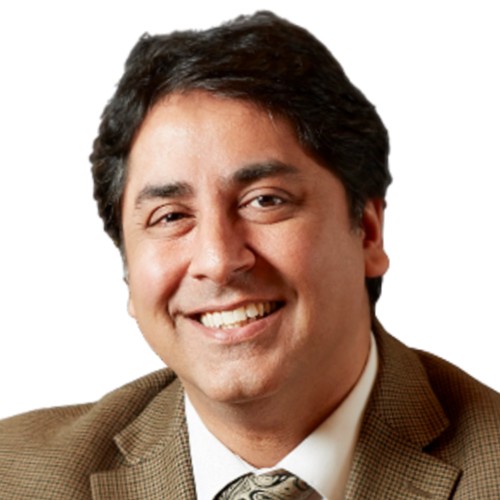
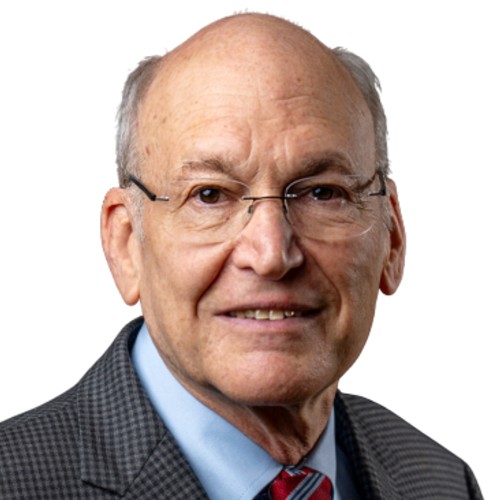
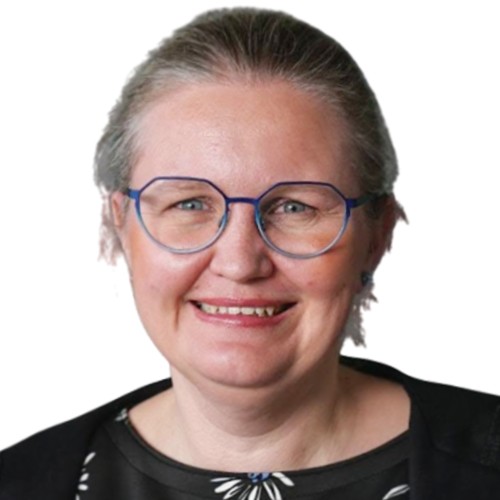
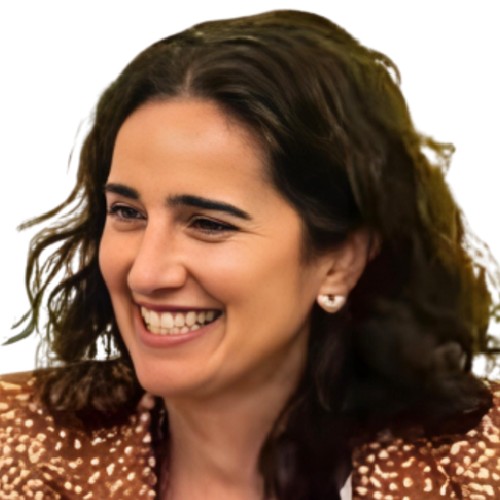
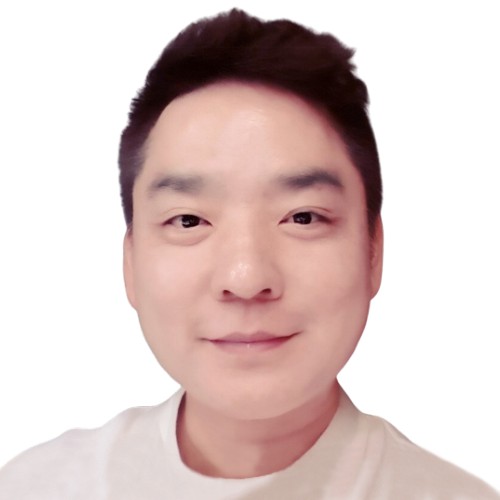
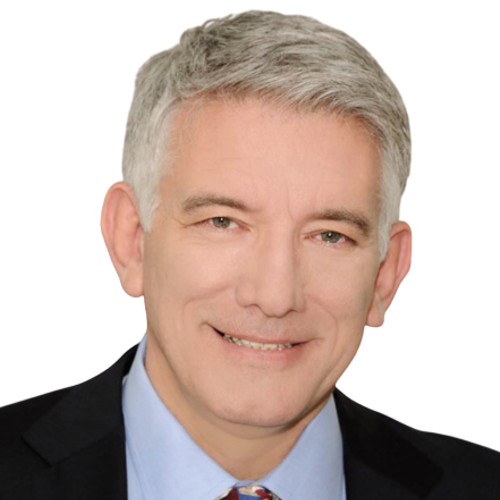
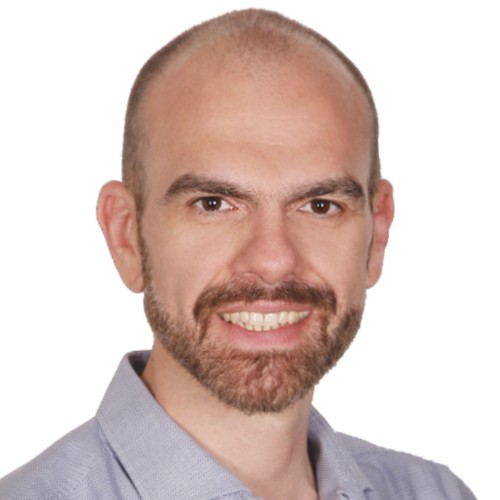
To listen to this podcast and get C.E. credits please login or become a member
Existing member? Please login here:
Don't have a Colgate Oral Health Network account yet?
Register for a free Colgate Oral Health Network account, it only takes a minute!
Register nowProduced by the Colgate Oral Health Network in collaboration with the International Association of Paediatric Dentistry (IAPD), this podcast series brings the IAPD Consensus Recommendations to life. Leading experts translate global evidence into practical strategies for the dental team, with episodes covering Early Childhood Caries, Molar Incisor Hypomineralisation, and Dental Care for Children with Special Needs. Designed for clinicians worldwide, the series delivers consensus-driven insights to support high-quality, patient-centred paediatric dental care.
This episode introduces the work of the IAPD Science Committee and the collaborative, independent process that led to the development of the Consensus Recommendations on Early Childhood Caries (ECC). Listeners will gain insight into how these evidence-based guidelines were created to support dental professionals worldwide in delivering effective, context-sensitive ECC care.
The presentation highlights key caries risk factors and emphasises the importance of tailoring care pathways to an individual child’s risk profile. It also explores how risk assessments are applied globally, taking into account differences in socio-economic status, family health, and access to dental care. Real-world examples illustrate how countries adapt these pathways for low-, moderate-, and high-risk children, reinforcing the need for flexible, patient-centred strategies in ECC prevention and management.
By the end of this episode, listeners will be able to:
- Explain how caries risk assessment drives personalised care pathways for Early Childhood Caries (ECC), based on the child’s individual risk level.
- Understand the evidence‑based process behind the IAPD Science Committee’s ECC consensus, including how global data and expert deliberation inform clinical recommendations.
- Apply insights from diverse international contexts, identifying how factors like socioeconomic status, family health, and access to care influence ECC prevention and management in low-, moderate-, and high-risk children.

Vineet Dhar BDS, MDS, PhD
This episode brings together global expertise from the IAPD’s consensus
recommendations for Caries Management in Children. Dental caries is a multifactorial disease that involves microbial, behavioral, genetic and environmental factors. This podcast integrates the concepts of person-specific, evidence-based and conservative oral health care to foster a
successful long-term management of dental caries in children. The type and intensity of preventive and restorative therapy should be determined utilizing data not only from clinical and radiograph examinations, but from a broad understanding of cariology that is applied to a specific child.
Following this unit of instruction, the practitioner should be able to:
- Describe factors, besides clinical examination and radiographs that are involved in
understand caries risk in children. - List several important caries risk indicators in a child.
- Be able to integrate patient-specific care, evidence-based care, and parent preferences in developing a caries management pathway for a child.

Norman Tinanoff DDS, MS
This episode provides an overview of Hypomineralised Second Primary Molars (HSPM) and Molar Incisor Hypomineralisation (MIH). Dr Marlies Elfrink outlines the IAPD Consensus Recommendations and explains how international agreement was reached to develop adaptable guidance for clinicians worldwide.
The global prevalence of HSPM and MIH with its regional variations will be discussed. More insight will be given on the etiological factors of HSPM and MIH.
Participants will learn to:
- Understand the IAPD Consensus development process and its implications for global practice.
- Describe global prevalence patterns of HSPM and MIH
- Describe possible etiological factors of HSPM and MIH
- Recognise the diagnostic significance of HSPM in predicting and managing MIH risk.

Marlies Elfrink
MIH significantly affects children’s quality of life – not only through its aesthetic and functional consequences, but also due to pain, hypersensitivity, and anxiety about dental care. Dr Joana Monteiro explores the child’s lived experience with MIH, using evidence from recent qualitative studies and clinical observation.
On the second half of this podcast, Dr Joana Monteiro presents the latest aesthetic techniques for improving the appearance of discoloured incisors, such as resin infiltration, composite bonding, and microabrasion.
Learning objectives
- Consider how MIH impacts children’s quality of life, including emotional, social, and functional aspects.
- Select appropriate management strategies to address aesthetic concerns in children with MIH-affected incisors
- Apply minimally invasive approaches to improve aesthetics on children with MIH, promoting preservation of tooth structure

Joana Monteiro DDS
This episode focuses on functional management of MIH-affected teeth. Dr Joana Monteiro discusses how hypersensitivity can limit brushing, eating, and treatment acceptance, and provides clinical strategies for identifying and managing this challenging symptom.The second half examines functional management strategies for first permanent molars, including when to restore or extract severely affected teeth. The discussion is grounded in clinical evidence and includes timing considerations, orthodontic implications, and practical tips for choosing the most appropriate treatment pathway.
Learning objectives
- Recognise MIH-related hypersensitivity and its implications for care.
- Apply practical strategies for managing hypersensitivity, based on the latest scientific evidence
- Evaluate treatment options for first permanent molars, including restorative and extraction strategies.

Joana Monteiro DDS
This foundational episode introduces the critical importance of transitioning from paediatric to adult dental services, particularly for patients with disabilities and special health care needs. Dr Young J. Kim explores why a structured, well-supported transition is essential to maintaining long-term oral health and preventing care disruption.
The episode also outlines best practices for building individualised transition plans, including how to assess readiness, set appropriate timelines, and coordinate with families and caregivers. Real-world examples highlight successful approaches to ensuring continuity of care.
Participants will learn to:
- Explain the significance of structured dental care transition plans for patients with special needs.
- Identify the steps involved in developing an individualised transition plan, including patient assessment and timeline development.
- Recognise key challenges and success factors in promoting continuity of care during the paediatric-to-adult care shift.

Young J Kim DDS, MS, PhD
This episode explores the importance of interprofessional collaboration when transitioning patients with special health care needs from paediatric to adult dental services. Dr Dimitris Emmanouil discusses communication strategies that promote continuity, including the use of structured handoff protocols and interdisciplinary planning.
The discussion also covers the challenges posed by fragmented care systems and how dental teams can build bridges through shared documentation, clinical summaries, and early engagement with adult providers.
Participants will learn to:
- Describe strategies for effective communication between paediatric and adult dental care teams.
- Recognise the importance of clear documentation and structured information transfer during the handover process.
- Understand how interprofessional collaboration supports patient-centred continuity of care.

Dimitrios Emmanouil DDS,MS,PhD
In the concluding episode of this series, Dr Andreas Agouropoulos connects the transition process to the IAPD Consensus Recommendations on Dental Care for Children with Special Health Care Needs. The episode provides a practical overview of how these global recommendations can guide dental teams in managing care transitions, ensuring that treatment remains responsive, inclusive, and tailored to individual needs.
Dr Agouropoulos also discusses implementation strategies, including workforce training, policy alignment, and how dental teams can advocate for system-level changes that support patients and families throughout the care continuum.
Participants will learn to:
- Apply the IAPD Consensus Recommendations to improve care for children with special health care needs.
- Develop transition strategies informed by international best practices, adapting them to local health systems.
- Support inclusive, patient-centred models of care that address the needs of children and adolescents as they mature into adult services.

Andreas Agouropoulos DDS, PhD

Vineet Dhar BDS, MDS, PhD
More courses with Vineet DharDr. Dhar holds multiple positions at the University of Maryland School of Dentistry, including clinical professor and chair of Orthodontics and Pediatric Dentistry, and assistant dean of postgraduate and professional studies. He currently serves as the Director of the American Board of Pediatric Dentistry (ABPD). Within the American Academy of Pediatric Dentistry (AAPD), Dr. Dhar is a member of both the Editorial Board of Pediatric Dentistry and the Evidence-Based Dentistry Committee. He also acts as a consultant for the Council on Scientific Affairs and the Council on Postdoctoral Education. He also serves as the chair of the American Dental Association (ADA) Guideline Advisory Panel. Additionally, he leads the Science Committee for the International Association of Paediatric Dentistry (IAPD). His work focuses on integrating evidence-based dentistry into education and patient care. Dr. Dhar contributes his expertise to AAPD, IAPD, and ADA expert panels, helping to develop evidence-based clinical recommendations.

Norman Tinanoff DDS, MS
More courses with Norman TinanoffDr. Norman Tinanoff received his dental degree from the University of Maryland in 1971. After receiving his certificate and Masters Degree in Pediatric Dentistry at the University of Iowa, he spent another year at the V.A. Hospital in Iowa City in a research fellowship. For 23 years he was at the University of Connecticut Health Center where he was director of the Pediatric Dentistry graduate program for 16 years. From 1999 to 2016 he was Chairman of the Department of Pediatric Dentistry and the Department of Health Promotion and Policy at the University of Maryland. Dr. Tinanoff has authored or co-authored over 225 publications, primarily on fluoride mechanisms, antimicrobials, caries risk factors, early childhood caries and prevention.

Marlies Elfrink
More courses with Marlies ElfrinkMarlies Elfrink studied dentistry at the Radboud University Nijmegen, and followed the master program in paediatric dentistry at ACTA (Academic Centre for Dentistry Amsterdam), the Netherlands. In 2012 she received her PhD for her research on Hypomineralised Second Primary Molars (HSPM). Nowadays she works as a paediatric dentist in clinical practice and participates in the Paediatric REsearch Project (PREP). She regularly writes articles on research projects and she presents it at national and international conferences. She is section editor (developmental defects) of the Eur Arch Paediatr Dent. She is a member of the science committee of the NVvK (Dutch association of Paediatric Dentistry) and IAPD and participates in guideline development in the Netherlands.

Joana Monteiro DDS
More courses with Joana MonteiroJoana Monteiro joined the University of Sheffield in 2021, where she was appointed Senior Clinical Lecturer and Honorary Consultant in Paediatric Dentistry. Her main interests include the care of children with dental anomalies and she is currently undertaking a PhD investigating hypersensitivity in children with molar incisor hypomineralisation.Joana leads a joint clinic for children with metabolic bone disease, including rare conditions such as osteogenesis imperfecta and X-linked hypophosphataemia. She co-founded the UK Clinical Excellence Network for amelogenesis imperfecta and dentinogenesis imperfecta to support best practice and multidisciplinary collaboration, and she is currently co-editing a book on amelogenesis imperfecta.Joana has published on topics related to paediatric dental anomalies and contributes to the development of clinical guidelines for both the European Academy of Paediatric Dentistry (EAPD) and the International Association of Paediatric Dentistry (IAPD).

Young J Kim DDS, MS, PhD
More courses with Young J KimYoung J Kim is a professor at the Seoul National University. He was the chair of the department of Pediatric Dentistry and the vice President of the University Dental Hospital. He was formerly the president of Seoul dental hospital for the people with disabilities. He is former president of KADH (Korean associations for disability and oral health) as well as AADOH (Asia Association for Disability and Oral Health). He is President elect of iADH (International association for the disability and oral health) and former Board of Directors at IAPD(International Association of Paediatric Dentistry). He is also President elect of KAPD (Korean Academy of Pediatric Dentistry). He received dental degree (DDS, MSD, PhD) from Seoul National University, Korea and worked for the advanced research at UCLA. He is board certified pediatric dentist and iADH fellow. He gave lots of invited lectures for the numerous conference and dental societies for various countries. He volunteered for several mission trips to provide dental care to underserved populations in Uganda, Malawi, Mongolia, Laos, Myanmar, Vietnam, Peru etc. Dr. Kim continues to provide lectures and hands on program for dental societies in developing countries with a focus on caries prevention and special needs dentistry. He published more than 250 papers and textbooks of Pediatric Dentistry and Special Care Dentistry.

Dimitrios Emmanouil DDS,MS,PhD
More courses with Dimitrios EmmanouilDimitris Emmanouil is a specialist paediatric dentist currently working in private practice and teaching.Past Assistant professor at the Department of Paediatric Dentistry, Dental School, National and Kapodistrian University of Athens, Greece, past senior lecturer at King’s College Dental Institute, London, UK.Clinical Director of DentalKids, a group of dental practices in three European countries(Greece Italy and the UK) dedicated to Paediatric Dentistry and Orthodontics, having treated thousands of children over the span of 30 years of practice.He completed the Paediatric Dentistry postgraduate program of Children’s Hospital of Wisconsin, Medical College of Wisconsin, USA. He also earned a Master’s from Marquette University, USA, a PhD from the University of Athens, Greece and a Certificate in Epidemiology from Harvard Medical School.For more than 10 years he has been adjunct Assistant professor at Washington State University, School of Pharmacy where he has done extensive research on Nitrous Oxide Pharmacology winning awards from the American Academy of Paediatric Dentistry,International Association of Paediatric Dentistry and American Society of Dental Anesthesiology.Co-editor of the book “Nitrous oxide in Paediatric Dentistry” (Springer), authored chapters in Paediatric Dentistry, Sedation and Special Care textbooks and published in the international literature, receiving nearly 1.000 citations.He is being invited internationally to lecture on Nitrous Oxide, Special Care Dentistry and Behavior modification and he has lectured annually at Harvard Continuing Education courses in the USA.Past president and fellow of IADH (the International Association of Dentistry for Disability and Oral Health), ADSE (the American Dental Society of Europe), the oldest Dental Society in Europe. Regent of Greece and Cyprus for the International College of Dentists and National director of Special Smiles- Special Olympics, Greece.Speaks English, Greek, Italian, French, Spanish and German.

Andreas Agouropoulos DDS, PhD
More courses with Andreas AgouropoulosDr. Andreas Agouropoulos is Assistant Professor at the Department of Paediatric Dentistry, National and Kapodistrian University of Athens, Greece. He received a Certificate in Paediatric Dentistry from Tufts University, School of Dental Medicine, Boston, USA and a M.Sc. Degree and PhD in Oral Biology from the University of Athens. Since 2003 he is also working in private practice limited to Paediatric Dentistry. His research interest and work is focused in epidemiology, oral biology, clinical research in healthy and patients with special needs, caries risk assessment, biomaterials, patient behaviour and evidence based clinical guidelines development. He is the President of the Hellenic Society of Paediatric Dentistry, Member of the Constitution Committee of the European Academy of Paediatric Dentistry (EAPD), member of the Education Committee of the International Association of Paediatric Dentistry (IAPD). He has participated as a speaker in national and international congresses, has published several articles and he has received international awards for his research work.



